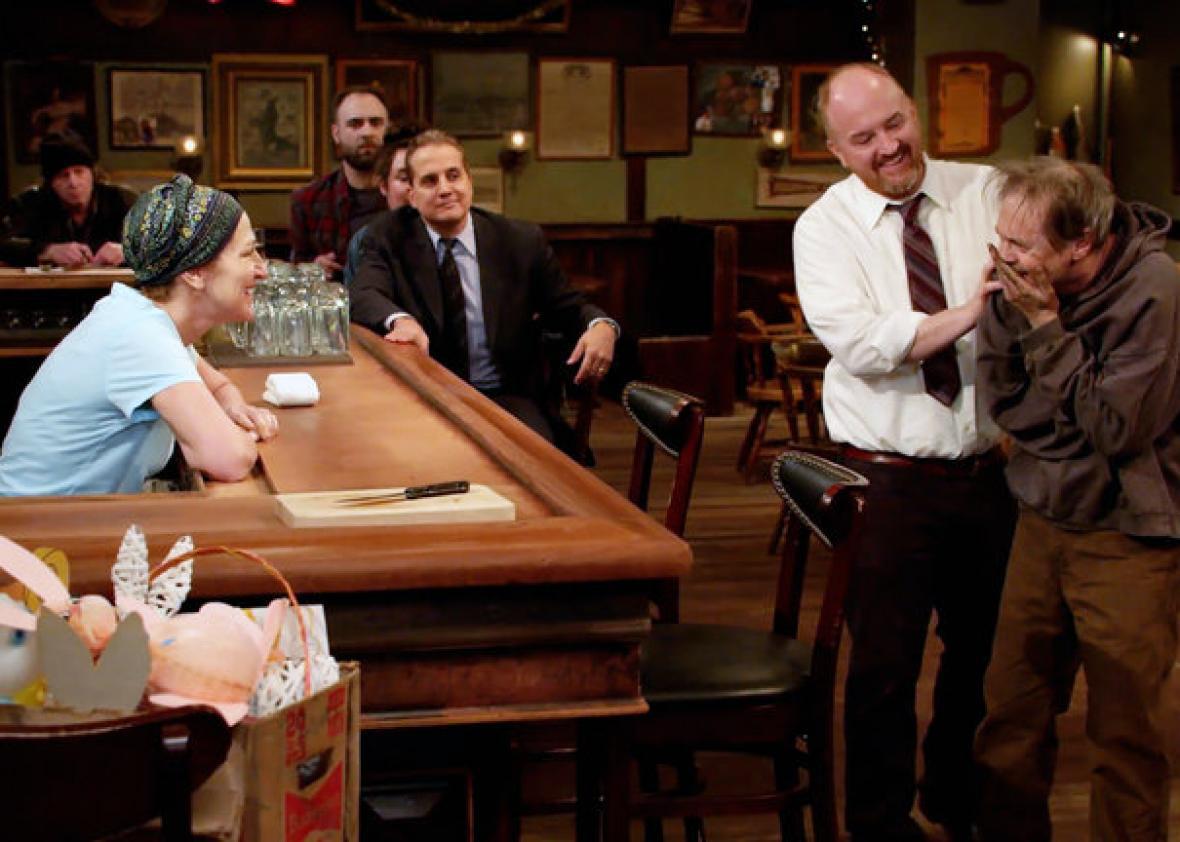In January, Louis C.K. unveiled a new project on his website: Horace and Pete. It was around an hour in length, set in a bar, filled with great actors—namely Steve Buscemi, Edie Falco, Jessica Lange, Alan Alda, and C.K. himself—and filmed in a multicamera style, with the talky nature of the drama further bolstering its retro feel. It cost $5. It featured references to events that had taken place only days earlier. What exactly the money was for was unclear. Was it a TV pilot or a stand-alone special or something different altogether? Whether and how it would continue was left unstated.
As C.K. began communicating with fans via newsletter and releasing Horace and Pete episodes on a weekly basis, the reality of his experiment became clear: He’d self-financed a star-studded drama series with impressive secrecy (and, apparently, at the risk of going into deep debt), fresh off of his hiatus from Louie. The finished product was a 10-episode drama series of surprising depth and ambition, old-fashioned in execution and modern in distribution but at a relatively hefty total cost of $31. As of Friday, however, Horace and Pete has finally been made more accessible: It’s now streaming on Hulu.
The series centers on Horace and Pete Wittel (played by C.K. and Buscemi, respectively), brothers who run a century-old dive bar in gentrifying Brooklyn along with their Uncle Pete (Alda). It’s a formally ambitious show that heads in many unusual directions, depending on the episode, but for the most part the narrative explores the Wittel family’s legacy of depression, abuse, and mental illness, bottled up in the bar and eventually laid bare by Sylvia (Falco), Horace and Pete’s sister. Early on in the series, Sylvia tries convincing the family to sell the bar, a plot point that drives each of the three siblings to meditate on their relationships to the past, the present, and one another.
There are many reasons to watch. The barroom atmosphere created by C.K., who writes and directs all of the episodes, is evocative in its despair; many of Horace and Pete’s best moments come in the simple, intimate interactions between the bartenders and their regulars. And the show is stacked with terrific performances: Falco, Buscemi, and especially Alda—playing a seething, foul-mouthed, bigoted relic of the past—are really at the top of their game here, while several others show up for brief but meaty cameos. (Laurie Metcalf is particularly brilliant in Episode 3, and she netted the show’s sole acting Emmy nomination, for Guest Actress.) But be aware: The season gets awfully bleak as it heads toward its conclusion. Although there are some inevitable stumbles along the way—including some stilted political commentary and a clunky handling of trans issues—it finishes as a richly rewarding, classically realized tragedy, remarkable for its sheer existence.
